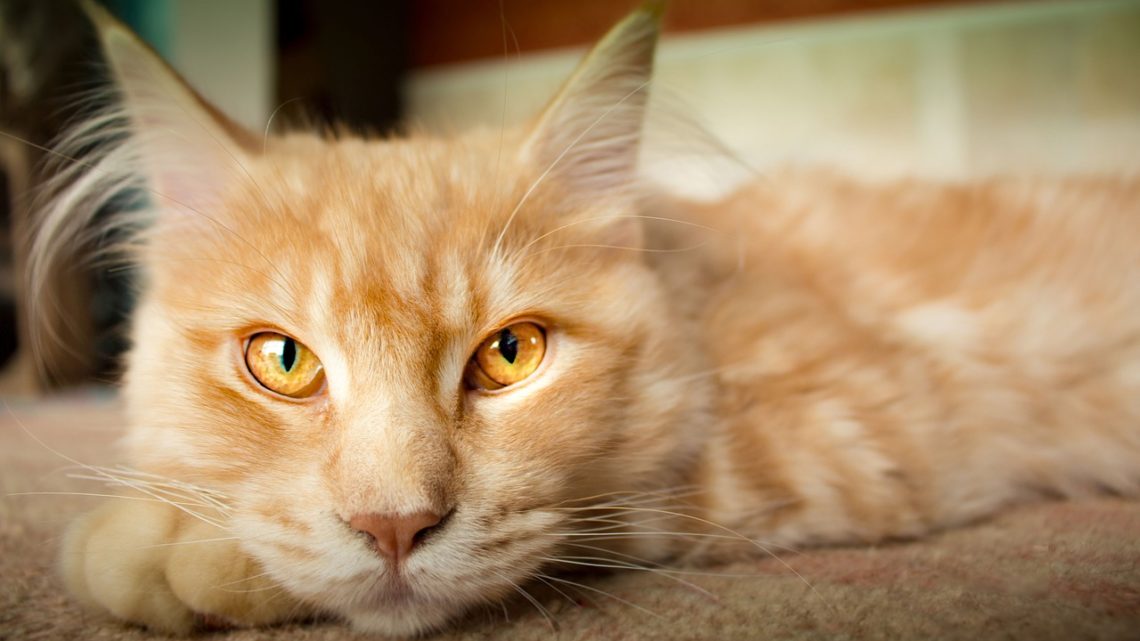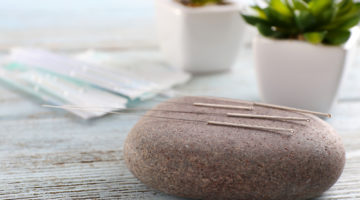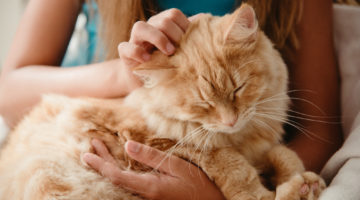From acupuncture and weight management to nutritional supplements and Reiki, there are many natural ways to help relieve the pain and stiffness of arthritic cats.
Arthritis affects as many as three in ten felines. A number of natural approaches can help mitigate the pain of arthritic cats, and a multi-modal approach will get the best results.
Environmental changes
Making the house more comfortable for arthritic cats is a good place to start. For example, add steps or ramps to give him easy access to his favorite lounging and sleeping areas. Make sure the litter box is in an easily-accessible spot, and use a model with a low entry point, along with high sides if he can no longer squat.
Nutritional supplements
Glucosamine, chondroitin, MSM, SAM-e and Omega 3 fatty acids can all help control inflammation and reduce pain in cats with mild to moderate arthritis.
“Fish oil-based Omega fatty acids, which have a naturally anti-inflammatory effect, and oral or injectable joint support products, help build the health of cartilage and other musculoskeletal tissues from the inside,” says veterinarian Dr. Patrick Mahaney.
Diet and weight management
Excess weight puts additional stress on weight-bearing joints. Help your cat lose weight by feeding her a high quality, whole meat-based and grain-free diet, and encourage gentle exercise on a daily basis. Remove dietary triggers of inflammation, particularly foods high in carbohydrates such as low end commercial dry kibbles.
 Acupuncture
Acupuncture
Dr. Mahaney became a certified veterinary acupuncturist because he wanted to find ways to manage feline pain while reducing reliance on pain medications. “Prescription pain medications can affect a cat’s kidneys, liver, digestive tract, and blood clotting capacity, or cause sedation that can compromise his mobility and overall quality of life,” he says.
He uses multiple acupuncture modalities when managing arthritis pain in his feline patients. In addition to needles inserted into points along the body’s meridians to incite energetic changes that release anti-inflammatory, pain-relieving and calming or stimulating hormones, Dr. Mahaney also uses aquapuncture, electrostimulation, and laser acupuncture.
Reiki
Reiki and other energy therapies are a gentle way to alleviate pain and stiffness. “A number of my cats have lived well into their teens, and several were pretty arthritic in their last few years,” says T. J. Banks, a Reiki Master Practitioner. “I used Reiki whenever one of them was experiencing discomfort. It gave them an energy boost, and they were definitely happier and more at ease afterwards.” With training from a Reiki Master, you can learn to do Reiki yourself.
Homeopathy
Homeopathic remedies, prescribed by a veterinarian trained in the modality, can help cats with aching joints. “Arthritis represents chronic disease, and it’s difficult for a laypeson to take on a chronic disease,” says veterinarian Andrea Tasi. “It requires assessing the whole patient. Prescribing on single symptoms rarely achieves anything curative; it will be palliative at best, and suppressive at worst, and it violates a golden rule of true, classical homeopathy: give only one remedy at a time.”
Rhus Toxicodendron is good for animals that have a hard time getting up, but are better after walking a while. Another remedy that can help is Ruta Graveolens, while Arnica Montana is useful if an animal is in severe pain and afraid of being touched. Again, be sure work with an experienced homeopath when treating your animal.
 Herbs
Herbs
Many herbs can help with your cat’s arthritis, but it’s very important to work with a holistic or integrative veterinarian before giving any herbal remedies to your cat. Curcuma, boswellia and tumeric are all useful anti-inflammatories. Other anti-inflammatory herbs include yucca and willow bark. Chinese herbs also can be beneficial for arthritic conditions, and are usually available in blended formulas.
Targeted pulsed electromagnetic field therapy
Low-level pulses of electromagnetic energy stimulate the body’s healing mechanisms to help relieve pain and swelling. The Assisi Loop, created by Assisi Animal Health, is a non-pharmaceutical, non-invasive device that uses this technology. It is well tolerated even by sensitive cats. Veterinarian Dr. Katie Kangas considers the Loop a great match for any animal because of the convenience and ease of accomplishing frequent treatments. “This ultimately means better results and potential for faster healing,” she says.
Cannabis
Cannabis (medical marijuana) is gaining widespread use in the animal world. Because of its anti-inflammatory properties and proven ability to control pain, it fits well into a multi-modal approach to arthritis. “The endocannabinoid system (our natural cannabis receptor system) is considered an adaptogenic system that works well with both Chinese and Western medicine ideologies,” says veterinarian Dr. Sarah Brandon. “It ‘listens’ to the body’s needs and shuttles cannabis compounds where they are needed, when they are needed.”
Even just two or three of the modalities mentioned in this article will go a long way to easing your arthritic kitty’s discomfort!







No Comment